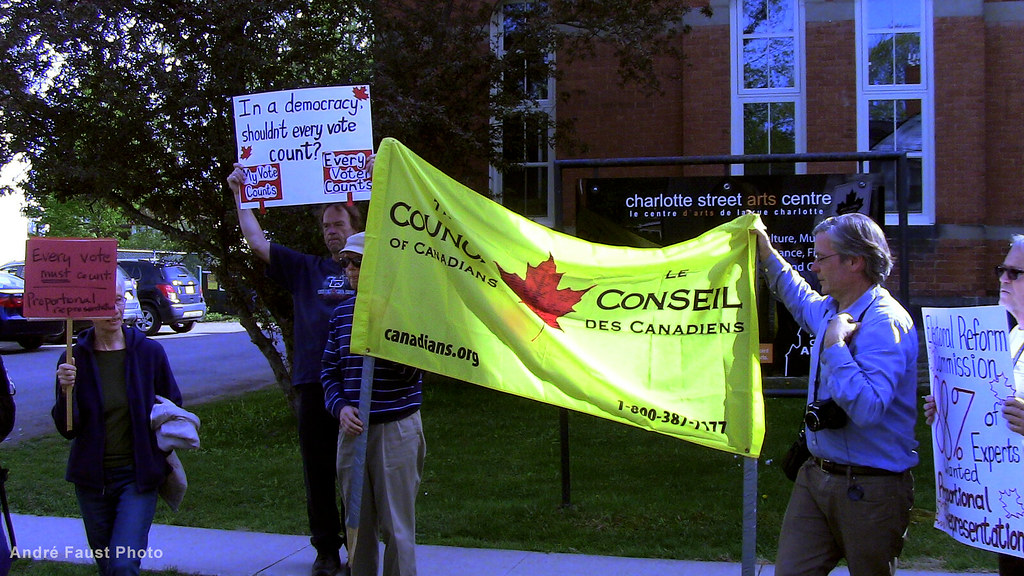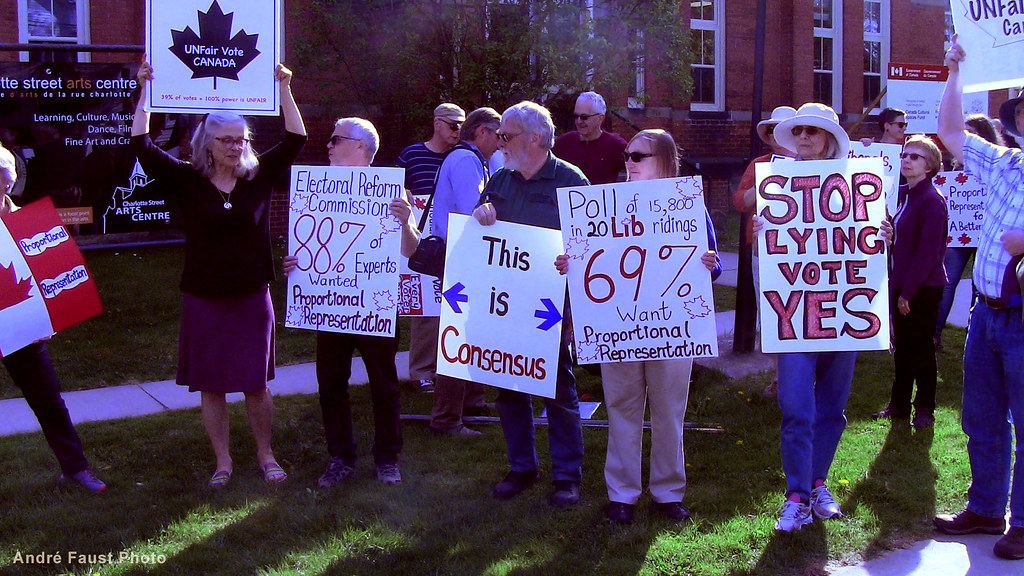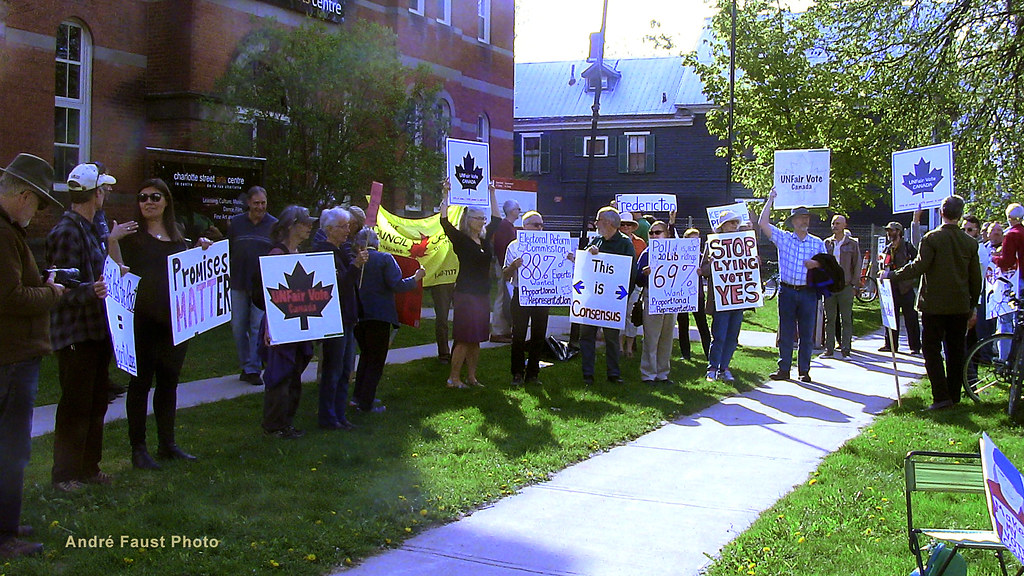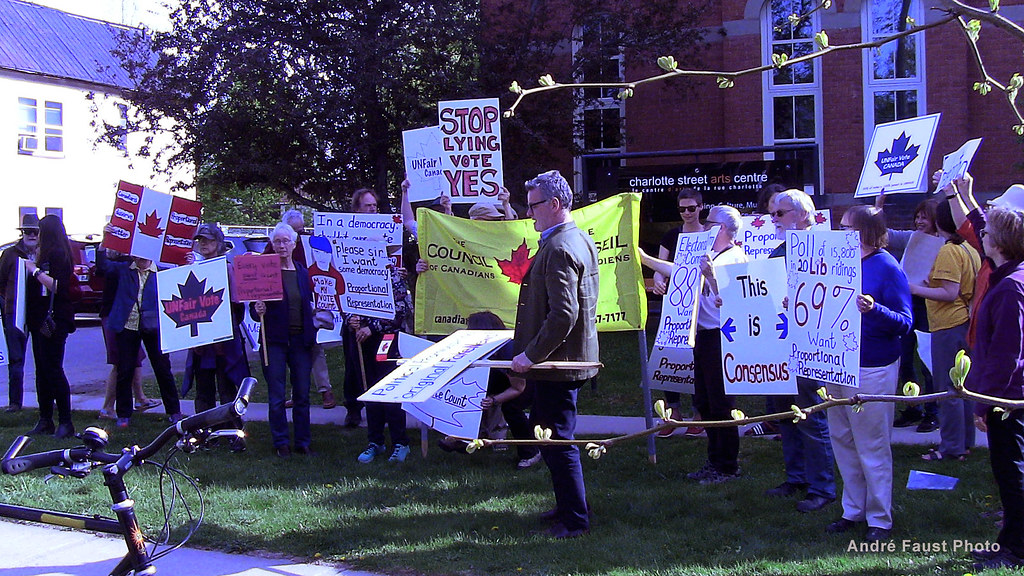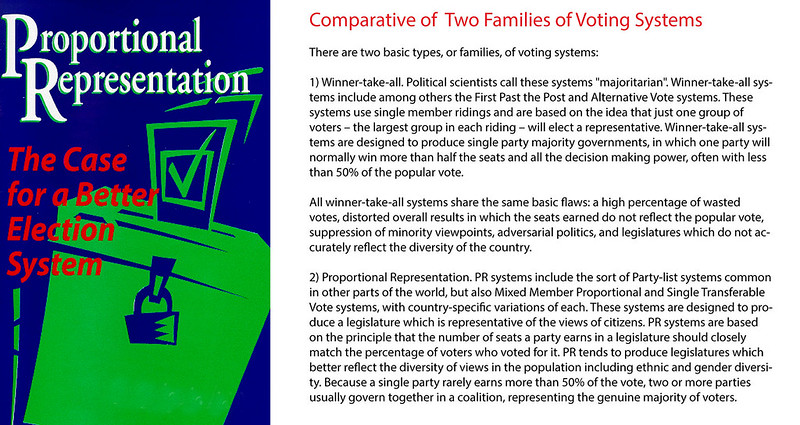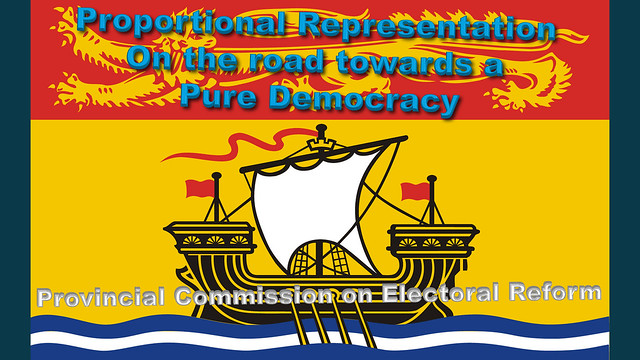
Presentation to the NB Commission on Electoral Reform, January 23, 2017
Thank you for the opportunity to present this evening. I am sure you have grown weary hearing presenters speak to the narrow focus of your charge; therefore I will speak to the reasons you must get on with recommending that proportional representation be immediately implemented in New Brunswick.
My reasons are five-fold:
1. I believe that the current first past the post system attracts (generally) poor candidates. There are exceptions, of course. But the system seems to appeal to the personality that is most prone to serving himself over others. We are saddled consistently with egocentrics and people with intense corporate connections and interests to serve. A mixed member proportional representation system would be more welcoming to average citizens with no special interests to benefit from the fact of being in public office.
2. Poor candidates lead to incompetent ministers and poor decisions. Witness the Atcon fiasco, brought about solely by elected MLAs who to this day remain in our government cabinet. Straitjacketed by the two-party system, whole regions of NB that are not on the inside of a Conservative or Liberal Registered District Association are shut out of the electoral process. Proportional Representation would allow more parties, more viewpoints, and hopefully, but not assuredly, better candidates to enter the race for public office.
3. Our current system is hollowing out the civil service. It’s hard to go to work every day wanting to do the right thing as suggested by science and evidence, only to be told by a co-opted Minister to develop a policy or program that serves a business or economic ideology, and in practice will result in adverse impacts. When you don’t see your values reflected in your work that is a recipe for suffering—by you, your family and most of all, your work. Right now one department has a motto that has arisen because of Ministerial incompetence, that is, “Loyalty over honesty.” I’ll let that sink in for a moment.
4. Your committee has discussed civics education for students who, I would argue, should be given the vote at age 16. I propose this education be extended to incoming MLAs. This would include extensive coaching on the Public Trust Doctrine (which is the principle that certain natural and cultural resources are preserved for public use, and that the government owns and must protect and maintain these resources for the public good.) AND their personal fiduciary duty to the public of NB in the management of these “resources.” Fiduciary duty, if taken seriously in NB, would not be allowing the NB government to lose many hundreds of millions of dollars on the so-called “management” of our Crown lands, also known as unceded Wolastoq territory. The Auditor General in her 2015 report has shown the government to be ignoring its fiduciary duty to the public and its biggest asset—the Crown forest– in its pandering to unsustainable industry.
5. Finally, in addition to recommending proportional representation be undertaken in NB, I would recommend your commission require changes to the NB Civil Service Act in order to address some of the shortcomings of our politicians and bureaucrats. One might think this Act would be the place to enshrine some of the selfless, universal principles of looking out for the public good and taking care of the commons for the prosperity of all but no, this isn’t the case. The Act is all about secrecy and keeping information out of the hands of the public. It is disgraceful and an embarrassment to New Brunswick. Its overhaul should be part of a major push for electoral reform—one that properly educates MLAs in how they are expected to conduct themselves while in the People’s House, and throughout their terms in office.
Thank you.
Concerned Citizen

